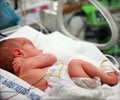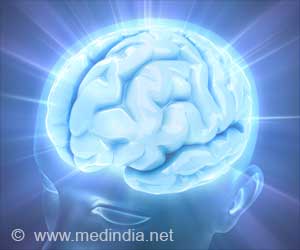Medindia interviewed Dr. M.S. Ranjit, Pediatric Cardiologist on the challenge of encouraging parents to bring their children for correcting heart defects and take home healthier babies.
Medindia interviewed Dr. M.S. Ranjit, DCH, MD (Pediatrics), Professor and Consultant Pediatric Cardiologist, one of the pioneers of Pediatric Cardiology in Tamil Nadu, South India. With his medical expertise and caring attitude, Dr. Ranjit has gladdened the troubled hearts of innumerable parents who've had babies born with defective hearts.
In this interview he traces the progressive development of this medical specialty in India and how successful outcomes encourage more and more parents to bring their children for corrective heart surgeries and take home healthier babies.How did you get interested in Pediatric Cardiology?
Paediatrics and Hematology always fascinated me while I was in Medical College. However I was disenchanted with Hematology seeing the number of leukemic deaths in the 1980s. I sort of gravitated towards general pediatrics and was at it from 1984-87. I pursued the subject further at the Royal Children’s Hospital in Melbourne, Australia. I returned to work with Dr. K.M. Cherian and later at the Southern Railway Hospital at Perambur. After another stint abroad I returned to work in Sri Ramachandra Medical College (SRMC) in Chennai and I am here since 1994.
Pediatric Cardiology has always been a challenging field especially in the 1980s in India, when parents were skeptical about medical treatment for their babies with defective hearts. They assumed the baby would anyhow die and preferred not to "trouble" the baby with the rigors of hospital treatment. Also Pediatric Cardiology was in its nascent stage in India. In fact, only Delhi, Chennai and CMC Vellore had one or two Pediatric Cardiology teams consisting of a Pediatric surgeon and an anesthetist. It is an entirely different scenario now. Successful outcomes are encouraging more and more parents to bring their babies for cardiac treatment.
How difficult was it convincing people that children’s heart ailments could be successfully treated in India?
Strangely, even medical experts were doubtful about the possibility in India at one time. We published an article from SRMC in an International Journal about our success rate of treating children’s heart ailments. An expert committee thought we had cooked up results to show that 39 of the 40 children who had heart operation, survived. They double checked and were only then convinced of the high success rate. Children are precious and it is heartening to see parents leaving hospitals with their babies cured of heart ailments after successful treatment. Now we successfully operate even on newborn infants from day one after birth.
Cardiac treatments are expensive. But once parents decide to get their child treated for cardiac problems I see to it that money is never an issue. We try to tap the Prime Minister's or Chief Minister's fund. We ask the parents to seek help from the general public through notices in newspapers—that invariably gets a good response. Philanthropic individuals and cine actors' welfare associations – particularly actor Vikram's Fans Club and Women’s Welfare Syndicate have tapped sources to help parents meet the medical costs of treating their children. Parents of children who have been successfully treated often pitch in voluntarily to help other parents in dire need of money to support a child's medical treatment.
Parents with children affected by Down syndrome complications harbor deep pain and anxiety. The first thing I do is reassure them that their child will grow up to be healthy and bring happiness to them like any other child—maybe in different ways. With more and more awareness about Down syndrome, early referrals and health intervention, a little help, acceptance and care from those around, these "gentle" individuals affected by Down syndrome can join mainstream society and live a near-normal life. I see this happening with many of my young patients.
Can you recall a challenging medical case for our readers?
Almost all pediatric problems that I've treated have been unique and challenging. If I have to single out one case—it is a 45-day-old baby who was brought in from another state in India with severe complications such hydrocephalus (an outsized head), cleft lips and extremely fatal cardiac defects. We swung into action immediately. We operated on the baby’s heart and corrected heart defects, a neurosurgeon used a cerebral shunt and brought the head size to normal and the cleft lips were repaired. Today I have immense satisfaction in saying that the child has grown to be more than normal—is a school topper in fact!
Many of your medical papers are published in international research journals. Do you still find time for research amidst your busy work?
I have always had a keen interest in research and try to make time for research and publishing papers in journals.
Is it true that more babies are born with defective hearts than before? Does it have anything to do with modern lifestyle and diet?
No. That more babies are born now with defective hearts is only media hype. Increase in population, more awareness about heart diseases and more referrals for cardiac treatment could be reasons for more cases of children with heart ailments surfacing for public attention.
What is your vision for pediatric cardiology in India?
I am happy to see more young doctors than before, opting to specialize in this field in India. The Tamil Nadu government’s state sponsored health insurance scheme that has a tie-up with insurance companies and private hospitals to serve the medical needs of patients below poverty line is very encouraging. A lot many parents from remote villages who had earlier helplessly watched their babies die due to lack of awareness and money for medical treatment are now using the government health insurance scheme and walking out of hospitals cheerfully after successful free treatment for their children. This scheme is now operative only in a few southern states in India. I wish other states would implement similar schemes so that more young children enjoy healthy lives with early health intervention.
Medindia wishes Dr. M.S. Ranjit continuing success in his remarkable task of mending children's hearts and gladdening the hearts of worried parents.
Source-Medindia
Thilaka Ravi/L









